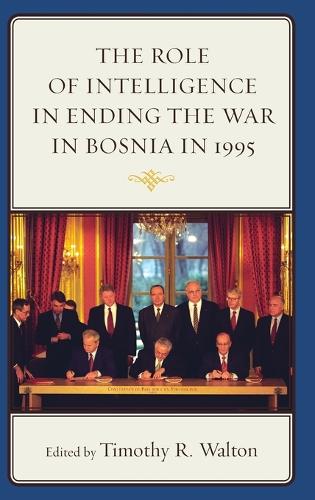
The Role of Intelligence in Ending the War in Bosnia in 1995
(Hardback)
Publishing Details
The Role of Intelligence in Ending the War in Bosnia in 1995
By (Author) Timothy R. Walton
Contributions by Jonathan R. Alger
Contributions by Pia Antolic-Piper
Contributions by Anamaria Berea
Contributions by Steven L. Burg
Contributions by Bob de Graaff
Contributions by Frances Flannery
Contributions by William Hawk
Contributions by John Hulsey
Contributions by Bernd Kaussler
Bloomsbury Publishing PLC
Lexington Books
26th September 2014
United States
Classifications
Professional and Scholarly
Non Fiction
Political control and freedoms
327.73049742
Physical Properties
Hardback
218
Width 162mm, Height 231mm, Spine 21mm
458g
Description
In the summer of 2013 the Central Intelligence Agency and the Clinton Presidential Library made an unprecedented declassification of more than 300 documents showing the role of intelligence in supporting American decision-making on Bosnia in the 1990s, and in particular the 1995 Dayton Peace Agreement, which brought an end to the fighting in Bosnia. The following spring, James Madison University hosted a conference in which scholars from all over the world assessed what the documents show about what is needed for the complex process of making peace. Aspects covered included military, political, diplomatic, and religious, among others. Timothy R. Walton's The Role of Intelligence in Ending the War in Bosnia in 1995 offers a collection of papers presented at the conference; several of the authors were participants in the events of the time.
Reviews
The major role that intelligence played in the war in Bosnia has been hidden until now.Drawing on a trove of declassified documents, these excellent essays deepen and change our understanding of US policy-making in this conflict and of the generalutility and limits of modern intelligence. -- Robert Jervis, Columbia University, author of Why Intelligence Fails
Author Bio
Timothy R. Walton is associate professor of intelligence analysis at James Madison University.
